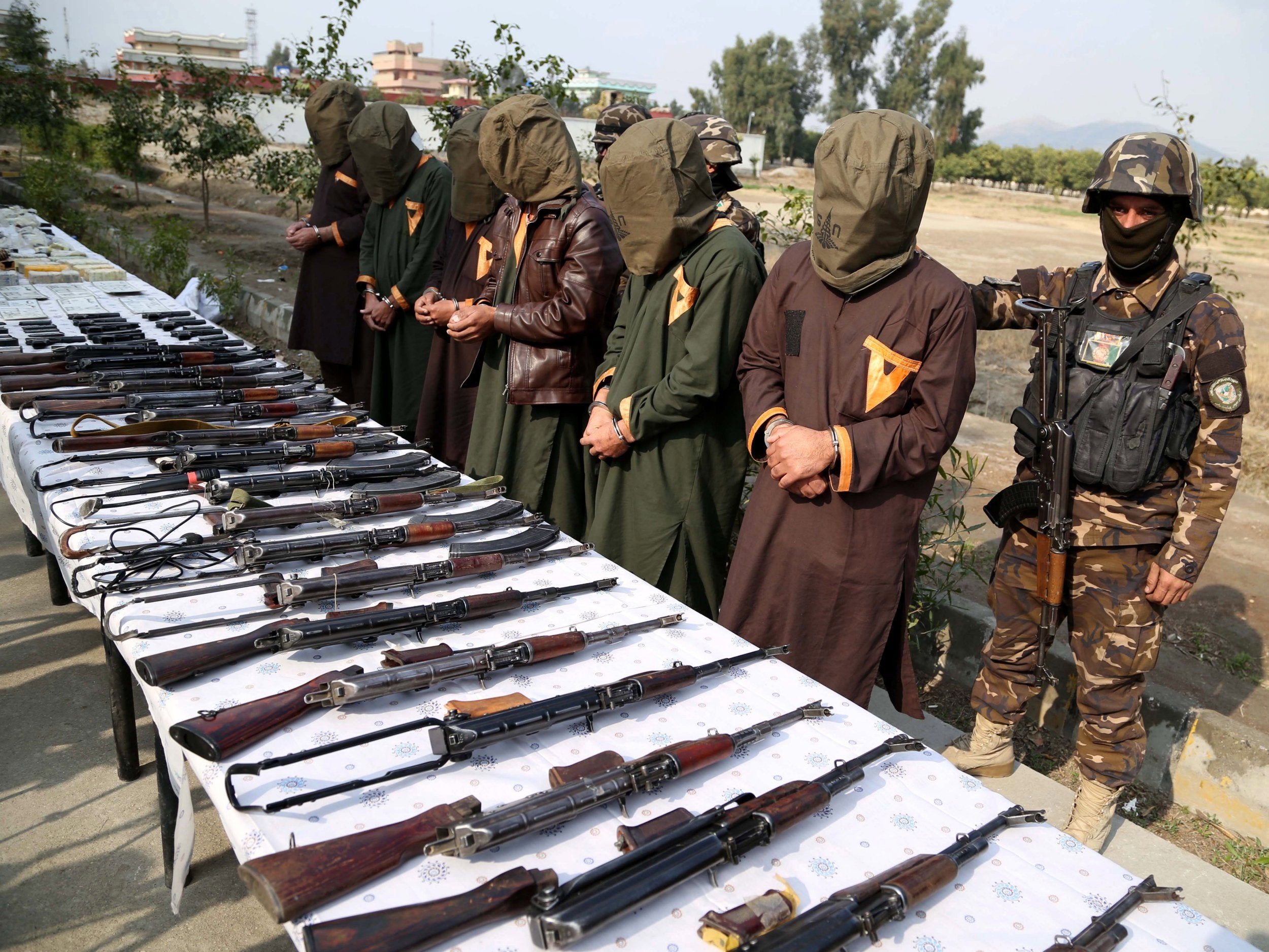Afghan government furious as Russia invites Taliban to talks in Moscow
Representatives of feared Islamists founded on anti-Soviet resistance to send delegation to land of once-sworn enemy

Your support helps us to tell the story
From reproductive rights to climate change to Big Tech, The Independent is on the ground when the story is developing. Whether it's investigating the financials of Elon Musk's pro-Trump PAC or producing our latest documentary, 'The A Word', which shines a light on the American women fighting for reproductive rights, we know how important it is to parse out the facts from the messaging.
At such a critical moment in US history, we need reporters on the ground. Your donation allows us to keep sending journalists to speak to both sides of the story.
The Independent is trusted by Americans across the entire political spectrum. And unlike many other quality news outlets, we choose not to lock Americans out of our reporting and analysis with paywalls. We believe quality journalism should be available to everyone, paid for by those who can afford it.
Your support makes all the difference.On Tuesday, Moscow will begin hosting peace talks that have sparked controversy before they have even begun.
There is anger over the two-day “intra-Afghan dialogue”, both from the Taliban, who will be attending, and the marginalised administration of President Ashraf Ghani.
On Monday, representatives of the radical Islamic group founded on anti-Soviet resistance confirmed a delegation would travel to the land of their once-sworn enemy.
They will join several dozen prominent opposition figures, including former president Hamid Karzai and Hanif Atmar, who is running against Mr Ghani in this year’s presidential elections.
The snubbed Afghan government have reacted angrily to the prospect of talks, describing them as an attempt to “gain power”, and “not in the interests of Afghanistan”.
The Taliban, for their part, have long refused to engage with the Ghani government, calling it a “puppet” of the United States.
Officially, Russia claims the talks are being organised by an obscure group of Afghan refugees ... This seems unlikely.
The strains and controversies might explain why the Kremlin is distancing itself from an event that very clearly retains its fingerprints.
Officially, Russia claims the talks are being organised by an obscure group of Afghan refugees called the Moscow-based Council for the Afghan Community, and not under the auspices of the foreign ministry, or the Kremlin, or even an associated platform.
However, it would be difficult for an event of this type to go ahead without the organisational, visa and security support of the Russian authorities. Taliban representatives would find it hard to get past passport control given the fact their group remains on the list of terrorist organisations. This particular detail has been magnified to absurdity in the Russian media, which is still obliged to refer to the Taliban’s “banned” status when reporting about the invitation to Moscow.
The US-led Afghan conflict is now in its 18th year. For a long time, Russia was not keen to get involved. Few in Moscow relished the prospect of another drawn-out battle in the Afghan mountains, the memories of the Soviet Union’s disastrous campaign in the 1980s still fresh in the mind.
But in the conflict’s later stages, as the Taliban strengthened their position, and the US weakened theirs, Russia looked to regain a foothold, and cultivate a close relationship with the the Islamic radical group.
According to a number of reports, that relationship now has a military dimension.
In 2017, US secretary of state Rex Tillerson openly accused the Kremlin of arming the Taliban as it fought US troops. The following March, the claim was repeated by Gen John Nicholson, head of US forces in Afghanistan.
There has been no direct proof of arms transfers, but there is “probably” some truth to the rumour, says Artemy Kalinovsky, author of A Long Goodbye: The Soviet Withdrawal from Afghanistan, and senior lecturer at the University of Amsterdam.
“Nothing has been definitely documented, but Russia has made little secret of where it thinks its interests lie,” he told The Independent. “It sees the Taliban as part of a future government, and would want to show commitment, to gain goodwill.”
Moscow’s interests in the region are twofold, the expert says. On one hand, rivalry with the US is never far away – “any attempt that makes the US look weak makes Russia happy”.
But the major consideration is the “legitimate security concern” of stemming the threat from Islamic terrorism near Russia.
“The Taliban never really had ambitions beyond its borders,” he says. “Isis is another thing. It has ways to strike in Russia – through radicalisation and more. The Taliban has been fighting Isis, and Moscow believes there is plenty of room for further collaboration.”
In this, Russian and US priorities are more closely aligned than ever.
In talks last week in Doha, US and Taliban officials reportedly signed up to the outlines of a peace deal that would see US troops leave in exchange for a commitment not to host al-Qaeda again.
Many obstacles to a deal remain – not least the facilitation of direct negotiations between the Taliban and the government – but US chief negotiator Zalmay Khalilzad described “significant progress”.
With upwards of 14,000 pairs of American boots still on the ground, no amount of Russian networking is likely to undermine the US-led talks. But for two days at least, Moscow will be the focus of attention – and anger.
Join our commenting forum
Join thought-provoking conversations, follow other Independent readers and see their replies
Comments